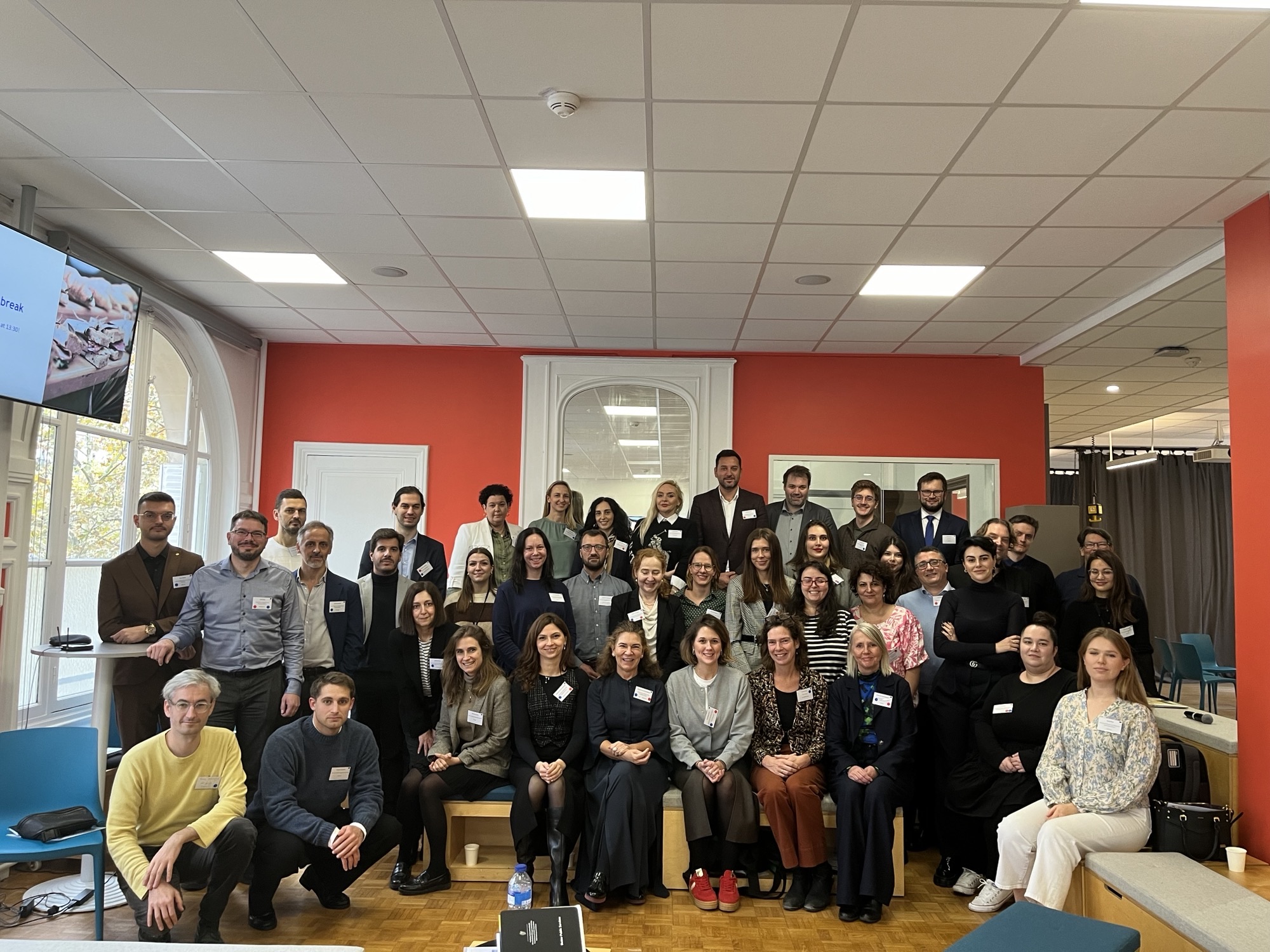EU Workshop for Data Providers in Paris
18 Samhain 2024Tá leagan Gaeilge den mhír seo ar fáil anseo.

On the 12th and 13th of November the Irish Open Data Team attended a collaborative and forward-thinking Workshop for Data Providers in Paris. This two day event was hosted by the Publications Office of the European Union in conjunction with the French Interministerial Digital Directorate. Over the course of the two days, Open Data Representatives from across Europe had a chance to connect with each other, share experiences and discuss opportunities and challenges surrounding Open Data.
On day one, we received a presentation from DG CNECT on the Policy Landscape in the EU for Data and Technology. We received updates on relevant policies and implementation statuses from DG CNECT, including best practices when reporting on High Value Datasets, a topic at the forefront of many countries agendas at the moments. A key takeaway from this session was the importance of generating high quality data that can be used for AI.
There was then a community session where we heard from Norway and Ukraine on how best to incorporate protected or “closed” data into Open Data Portals. From Norway we heard how the Norwegian data portal supports discoverability of “closed data” alongside open data, emphasizing standardization and access protocols. Ukrainian representatives presented on their approach to protecting open data amid conflict and the challenges of war, balancing transparency with national security needs. The presentation highlights recent legislative challenges and future goals aimed at fortifying resilience in the open data sphere.
In the afternoon, the key topic of discussion was High Value Datasets. We received a presentation on how the Publications Office is supporting the implementation of high-value datasets (HVDs) via data.europa.eu. This presentation showcased data.europa.eu's role in making HVDs findable and accessible in a Single Portal for European Data, supporting re-use, and reporting needs. Attendees gained insights from recent EU survey results on HVDs and the status of these datasets across EU countries on data.europa.eu. As a group, we then had the opportunity, in break out rooms, to discuss challenges and solutions for implementing the requirements of the HVD regulation. Some of the feedback speakers received was around how HVD’s are not always a priority in departments, there are technical complexities surrounding their publication, identification and aggregation, and that there are governance and data protection issues for many countries. It was advised we continually refer to the HVD Best Practice Reports published in June 2024 and collaborate with each other to find solutions to these barriers. These reports can be accessed here.
Finally, at the end of day one, we had an interactive and knowledge sharing session where we had the opportunity to discuss as countries how we best support and measure reuse and equally the challenges we face in doing this. For Ireland, we best do this through our annual Engagement Fund, our Newsletters, and our networking and conference opportunities.
On day two, the main item on the agenda was Artificial Intelligence. We heard from Switzerland who are using AI Tools to optimise searches and data descriptions on their data portal. We also heard from Bosnia Herzegovina are using AI for Data-Driven Public Services. These tools help in managing demographic trends and ensuring data consistency for reliable government services. Finally, Albania are looking into how AI, specifically multimodal language models, can enhance their open data portal by automating data categorization and improving search functionality. Key features include AI-powered data quality validation, scoring, and a chatbot for better public access
In an attempt to address to issue of Meta Data Quality, we heard from Italy and Denmark who are making progress in this area. Italy’s national data catalogue has achieved high metadata quality through tools like an online editor, RDF file generator, metadata validator, and SPARQL endpoint, which streamline metadata preparation and error reduction. The catalogue, which consolidates over 70 local sources, standardizes licenses and corrects metadata issues to maintain quality. Denmark’s national data portal offers flexible options for metadata transmission from publishers, all converging to produce harvestable DCAT-AP endpoints. The presentation focused on these options, particularly a new metadata entry portal that enhances publisher flexibility. We closed out the day with the Publications Office urging us to stay connected, exchange insights, and collaborate in real time, ensuring continued engagement and support for the open data community.

 Derilinx
Derilinx